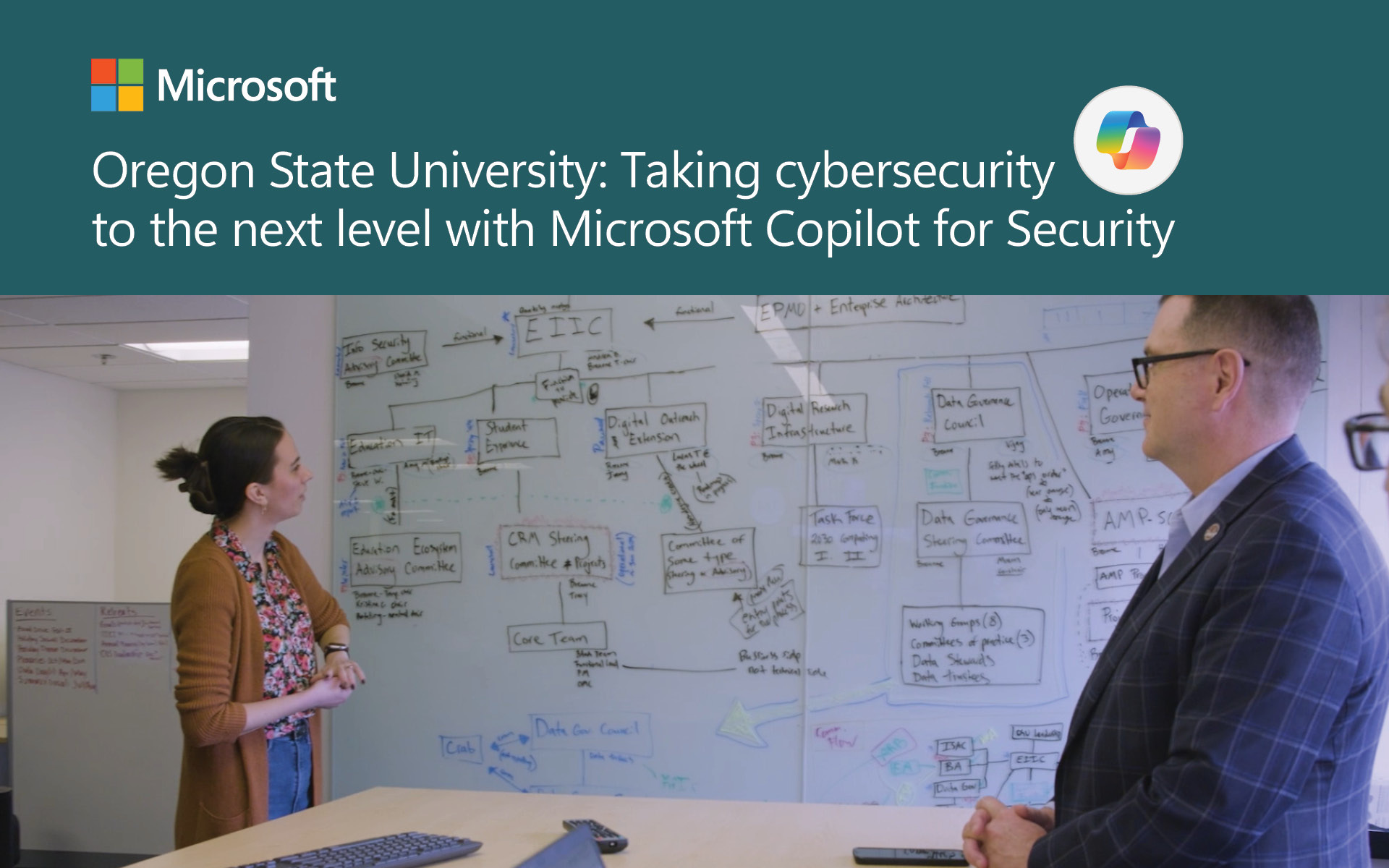Digital transformation is reshaping every aspect of our lives – how we live, learn, and work. This transformation impacts the skills students need to succeed both in the workplace of today and in the future, when they will be tasked with solving the most complex issues of any generation in history.
As a company, Microsoft has a vested interest in the skills economy that will drive future breakthroughs in innovation. Further, as parents, colleagues and citizens, we feel compelled to help support digital transformation in Higher Education, so that every student has an opportunity to learn what we call future-ready skills.
So, what can we do to help?
To help students acquire future-ready skills, we believe there are three key focus areas we must address in the near term:
- Support future-ready skills curricula while ensuring learning tools are accessible to all students
- Empower institutions with tools to improve student engagement, experiences, and outcomes
- Create safe and secure learning environments in the classroom and online
This week at the EDUCAUSE 2018 Annual Conference, Microsoft Education will share our new future-ready skills offering, new solutions for student success and lifecycle management, and advancements in safety and security. All are aimed at empowering Higher Education institutions to drive future-ready skills in safe and secure learning environments with successful outcomes.
Our Facebook Live stream from EDUCAUSE has wrapped up, but you can catch up on the news here.
Future-ready skills and accessible learning
As cyberthreats increase, so too does the demand for skilled cybersecurity professionals. Businesses need experts that can protect key systems, detect threats early on, and minimize business impact in the event of a security incident.
The new Microsoft Professional Program (MPP) Certificate in Cybersecurity was built to address the evolving landscape of threats businesses face and to enable students to develop the skills needed to start or grow a cybersecurity career. This 10-course MPP Cybersecurity track provides online courses, hands-on labs, and expert instruction to learn how to safeguard key systems, develop a cybersecurity defense plan, detect threats early, and minimize the business impact of information breaches. See the Microsoft Professional Program for CyberSecurity available on Microsoft’s Learning as a Service platform, delivered on OpenEdEx.
On campus, Higher Education Institutions depend on physical computer labs for classroom learning and development and test scenarios. Now, with Azure Lab Services, educators and IT admins can easily create computer labs in the cloud: automatically scale the number of virtual machines to the usage needed at the cost threshold you set, and delete the lab with a single click once you’re done. The service empowers professors, technicians, and students to work with virtual machines in the cloud without having to master the complexities of setting up the cloud infrastructure. Get an introduction, take a tutorial, or set up a classroom lab visit.
A key benefit to learning through technology, whether in the classroom or online, is that it can make content and engagement accessible to all students. Tools like Immersive Reader, Read Aloud and Dictation within Learning Tools help students of all abilities read, write and communicate. Building on top of these tools, new offerings like auto-generated captions and transcriptions for videos in English and Spanish are available with Microsoft Stream, in all Education plans of Office 365 for people who are deaf or hard of hearing (coming soon for audio and video in OneDrive and SharePoint Online). Capabilities such as Accessibility Checker and Automatic Alt-Text are also available in familiar applications such as Word and PowerPoint, to help content creators make visually compelling and accessible content for all learners.
Student success and lifecycle management
The new Dynamics Higher Education Accelerator, announced at EDUCAUSE today and available open-sourced on GitHub, makes it easier for all partners and developers to create new apps and workflows in Dynamics 365, enabling them to take new products to market faster. It contains industry standard data entities (e.g. student, course, test scores, etc.), pre-built dashboards, workflows, and sample data, as well as other tools to help partners and developers rapidly build business and analytic solutions for Dynamics 365 and the Microsoft Power Platform.
CampusNexus Engage, scheduled to be generally available in December 2018, is the outcome of a collaboration project between Microsoft and Campus Management, built using the Higher Education Accelerator.
In October, Campus Management announced that AccelerEd, a UMUC Ventures portfolio company bringing academic enablement and next-generation technology to educational institutions, has selected the CampusNexus® Suite on behalf of University of Maryland University College (UMUC). UMUC and AccelerEd will use CampusNexus, running on Microsoft’s Azure and Dynamics 365 platform, to increase student engagement, retention, and improve graduation rates through personalized experiences.
“At AccelerEd, our institutional relationships are always focused on improving the customer experience, advancing academic delivery, realizing cost efficiencies and creating a platform for growth and innovation in today’s competitive higher education landscape,” said AccelerEd President Tracy Woods. “Campus Management and Microsoft offer a technology collaboration that delivers on our performance expectations and our customer’s vision.”
- Read the blog on the Higher Ed Accelerator here.
- Get the Higher Ed Accelerator on GitHub here.
- See the video on how Campus Management is using the Power platform and the Higher Ed Accelerator.
Physical safety and online security
Our students live in an age of increased physical threats on campus, including gun violence, natural disasters and other safety risks. At the same time, data breaches, where personal information is stolen, and student cyberbullying are also a real concern. All potential hazards mandate the use of the strongest security technology, monitoring, notification and emergency response systems and technologies on today’s campuses.
Microsoft provides a comprehensive, intelligent, and extensible cloud platform to help keep students safe and secure in the classroom and online. Microsoft Threat Protection, announced last month at Ignite, is a new end-to-end solution that detects cyberthreats, remediates their effects, and protects Institutions from new and changing threats. It is Microsoft’s most comprehensive security solution and combines the intelligence of Microsoft’s security products. Microsoft co-sell ready partners provide solutions for access control, video surveillance and more.
Azure Digital Twins, a new IoT platform available in public preview on Oct. 15, will enable partners to build comprehensive digital models on any physical environment. These virtually represent the physical world and enable custom solutions that address Institutional needs to develop even more safe and secure learning environments on campus. Learn more about Microsoft Threat Protection and get the ebook on Physical Safety and Security.
For more information about Microsoft’s efforts across higher education, visit us at Microsoft’s Higher Education site.
References:
- President’s Council of Advisors on Science and Technology
- Fact Sheet: Focusing Higher Education on Student Success, US Dept of Education
- Cyberbullying in College



